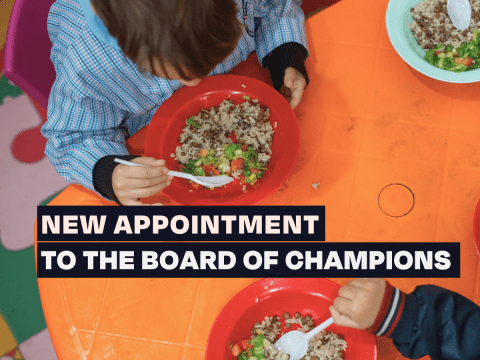World Vision Joins Global Alliance Board to Tackle Hunger and Poverty

Press Release. - London/Geneva 20 August 2025. Global relief, development and advocacy organisation World Vision, has joined the Board of Champions of the Global Alliance Against Hunger and Poverty, partnering with Ação da Cidadania, Instituto Comida do Amanhã, and Instituto Fome Zero. This collective civil society leadership will help ensure that global strategies to end hunger and malnutrition are rooted in community realities and guided by evidence.
The urgency of this work cannot be overstated. The 2025 SOFI report indicates that 2.3 billion people face food insecurity, while 149 million children under five are stunted and 45 million wasted. These stark numbers reveal that, despite progress in some regions, Current global efforts remain insufficient to eradicate poverty and hunger by 2030. In response, the Global Alliance Against Hunger and Poverty was established under the Brazilian presidency of the G20 to accelerate progress toward Sustainable Development Goals 1 and 2, while also addressing inequalities (SDG 10)
Through its global ENOUGH Child Hunger and Malnutrition campaign, World Vision advocates for stronger child-focused policies and systems while ensuring that the voices of vulnerable children are heard in the decisions that affect them. At the same time, World Vision delivers solutions grounded in community realities — from providing school meals and expanding essential nutrition services to supporting families with cash assistance, food security, and livelihood programmes. By connecting evidence from local programmes to global advocacy, World Vision helps ensure that strategies to end hunger and malnutrition are practical, sustainable, and centred on children’s needs.
“World Vision is committed to advancing policies that deliver lasting impact for children and families,” said Dana Buzducea, Partnership Leader for Advocacy & External Engagement. “Over the past 75 years, we have worked side by side with communities to co-create practical, evidence-based solutions to hunger and poverty. This role allows us to bring that learning into global spaces where it can shape real, systemic change”.
World Vision brings decades of child-focused, community-grounded expertise to this shared seat, linking high-level policy with insights drawn directly from families and local leaders. Its approach ensures that interventions are rooted in real needs, prioritise children, and are designed to be equitable and sustainable. With deep expertise in food security, nutrition, cash transfer programming, and social accountability, it is uniquely positioned to help the Alliance shape policies that are practical, evidence-driven, and transformative.
Together, the four organisations will promote strategic alignment across the Alliance, champion evidence-based policy, and maintain open channels of collaboration with local actors. Their joint role helps translate ambitious global commitments into practical, community-relevant interventions that break cycles of hunger and poverty.
ENDS-
For media interviews contact: Karla Harvey, Sr Advisor of Impact Comms & External Engagement Email: karla.harvey@wvi.org
NOTES TO THE EDITOR
The Global Alliance Against Hunger and Poverty mobilises political commitment, collective action, and resources to accelerate progress toward eradicating hunger and poverty (SDGs 1 and 2), reducing inequalities (SDG 10), and revitalizing global partnerships for sustainable development (SDG 17). It brings together governments, UN agencies, development banks, philanthropic organisations, and civil society groups to align efforts and drive systemic change. The Alliance plays a critical matchmaking role, connecting country-led priorities with the right mix of political support, technical expertise, and financial resources.
Financial commitment: World Vision commits to managing $3.4 billion across multi-sector resources to prevent and treat hunger and malnutrition among women, children, and adolescents. This includes targeted nutrition initiatives, such as Community-Based Management of Acute Malnutrition (CMAM) for children, Growth Monitoring and Promotion (GMP) for childhood development, and providing essential micronutrients to both women and children. Additionally, WV implements food-based approaches to address undernutrition. These efforts span health, school meals, food security, livelihoods, WASH (Water, Sanitation, and Hygiene), child protection, education, climate change, and gender programs across 100 countries.